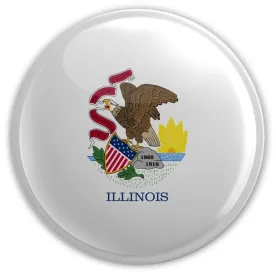On August 13, 2021, the State of Illinois enacted a law, amending the Illinois Freedom To Work Act (the Law) to limit the enforceability of non-competition and non-solicitation agreements between employers and employees in Illinois. The restrictions apply to contracts entered into on or after January 1, 2022.
Among the restrictions contained in the Law are:
-
A prohibition on an employer entering into a “covenant not to compete” (which is defined to include adverse financial consequences on the employee if the employee engages in competition activities after termination of employment) with an employee unless the employee’s actual or expected annual earnings exceed $75,000 per year (which amount is increased $5,000 every five years through 2037).
-
A prohibition on entering into a “covenant not to solicit” (which is defined to include solicitation for employment of the employer’s employees as well as soliciting for the purpose of selling products or services of any kind or interfering with the employer’s relationships with clients, prospective clients, vendors, prospective vendors, suppliers, and prospective suppliers) unless the employee had actual or expected annual earnings of $45,000 per year (which amount is increased $2,500 every five years through 2037).
-
Makes a covenant not to compete or covenant not to solicit void and illegal with any employee who the employer terminates, furloughs or lays off for reasons related to the COVID-19 pandemic.
-
Makes a covenant not to compete void and illegal with respect to employees covered by a collective bargaining agreement under the Illinois Public Labor Relations Act or the Illinois Educational Labor Relations Act, and individuals employed in contracts. (There are exceptions for certain construction employees.)
The Law further makes a covenant not to compete, or a covenant not to solicit, void and illegal, unless:
-
the employee receives “adequate consideration” (defined as the employee either working for the employer for two (2) years after signing an agreement containing the covenant not to compete or covenant not to solicit or being provided consideration adequate to support the covenant (which can be a period of employment plus additional professional or financial benefits or merely additional professional or financial benefits)) for agreeing to such a covenant;
-
the covenant is ancillary to a valid employment relationship;
-
the covenant is no greater than is required for the protection of a “legitimate business interest of the employer” (the Law provides that “legitimate business interest of the employer” is determined based on the totality of facts and circumstances with some listed examples);
-
the covenant does not impose an undue hardship on the employee; and
-
the covenant is not injurious to the public.
As a condition to the legality and enforceability of a covenant not to compete and a covenant not to solicit the employer must:
-
advise the employee in writing to consult an attorney before entering into the covenant; and
-
provide the employee with at least 14 calendar days to review the covenant (though the employee may voluntarily sign before the 14 days have expired).
The Law further provides, as an additional remedy available under any agreement between an employer and an employee or under any statute, in a civil action or arbitration filed by an employer (including a complaint or a counterclaim) that if an employee prevails on a claim to enforce a covenant not to compete or covenant not to solicit, the employee shall recover from the employer all costs and all reasonable attorneys’ fees regarding such claim. The Law specifies that the Illinois Attorney General has the authority to initiate or intervene if the Attorney General believes the employer is engaged in a pattern or practice prohibited by the Law, and grants the Attorney General investigative authority and the right to impose remedies and sanctions for those found in violation.
The Law authorizes a court to use its discretion to reform or sever provisions of a covenant not to compete or not to solicit, and provide factors the court may choose to consider in exercising that discretion.
The new Illinois Law follows on President Biden’s Executive Order Promoting Competition in the America Economy from July 9, 2021 in which President Biden encouraged the FTC to ban or limit non-compete agreements.
All health care entities and others using non-competition or non-solicitation agreements in Illinois should be aware of the Law and plan now to make appropriate decisions in light of it.




 />i
/>i

